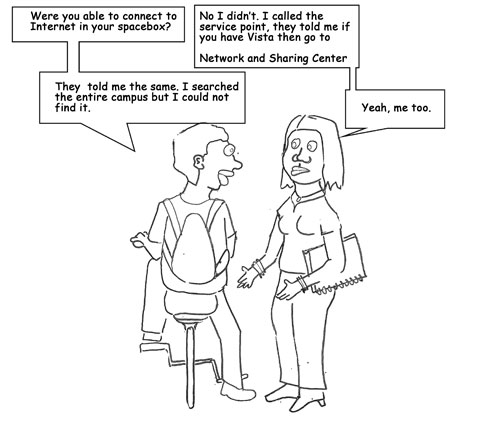For foreign students, Delft is a whole different world. TU Delft can do more to help them adapt, is the opinion of Bembga Nyakuma.
The illiterate of the 21st century, according to the American writer Alvin Toffler, will not be those who cannot read and write, but those who cannot learn, unlearn and relearn. This in my opinion is an indication of why many young people around the world go far in search of knowledge and self-improvement, even many years after completing their Bachelor’s degree studies. And it sums up the reason why many institutions of higher learning, such as TU Delft, are flooded with applications yearly and made to accept and train students from different cultures from all over the world. This is as huge a responsibility for the TU as it is for these budding young minds on their quest for knowledge. For many students, studying abroad is a huge investment that can often be burdened with numerous challenges: ranging from culture to language barriers, the weather, and methods of teaching, to name a few.
For students from developing countries, the challenges and surprising change in environment are usually very great. Many are suddenly faced with a new way of life, which is much different from the world they are used to, but to which they must quickly adjust. The most striking change often comes with the weather and climatic conditions in Europe. Students, especially from the tropical countries, often find the autumn-time or winter in which they arrive very cold. Because they are excited or anxious before arrival, they forget to prepare for the weather. This means they often arrive unprepared and are forced to tread the slow, painful path of adaptation to the merciless wiles of the weather. Many eventually do adjust, but this usually takes some time.
For some students the weather is not a problem, and so they adjust and settle-in rather quickly. The real challenge often comes when academic studies begin. Like most world class universities in the west, TU Delft offers its students state of the art teaching facilities, employing the most up to date teaching methods that can be found in any modern institution of higher learning. However, most students that arrive are not accustomed to this and must also fine-tune themselves to academic life using these facilities. The fact that most students, especially from developing countries, are often not accustomed to this style of teaching – especially the use of information and communications technology – leaves them a little frustrated at the beginning. The often hard process of learning how to use these teaching and learning aids, such as the internet, email, computers, and blackboard, simply adds to the many other challenges they face. This is often hard to adapt to, when compared to their home countries where professors simply use chalkboards and lectures don’t employ powerpoint presentations or computer-aided analogies to drive home the points. Fortunately, as often is the case, new students eventually adapt to the new teaching methods that TU Delft offers them.
However, the TU can do more to help these students when they arrive. The university can do this by giving its new students thorough integration courses from the outset, especially during the Introduction Week or Summer School programs. This can also be made compulsory for all new students – especially those from developing countries After all, in the words of the American educator Mortimer Adler, “The purpose of learning is growth.” The reason why these students leave home to study abroad in the first place is to search for knowledge and self-improvement; they must therefore be grilled from the beginning to imbibe the norms of life as students in het buitenland, and as the future alumni of this great citadel of learning that is TU Delft.
Een team van vier masterstudenten van verschillende faculteiten roept wetenschappers en studenten op om hen te helpen bij het oplossen van een wetenschappelijk probleem. Ze werken zelfs aan een prijsvraag. De vier hopen zo voor te blijven op Lockheed Martin, dat ook zoekt naar een betaalbare manier om energie te halen uit zeewater.
De studenten doen hun onderzoek in het kader van de Design Challenge. Die is dit jaar voor het eerst in het leven geroepen om te experimenteren met interfacultaire masterprogramma’s. De studenten krijgen de mogelijkheid een bestaand probleem niet alleen te analyseren, maar ook echt aan een oplossing te werken. Deze groep doet dat in opdracht van een energiebedrijf.
Volgens de teamleider, Jody Verpoort (TBM), zoekt de wetenschap al dertig jaar naar een betaalbare manier om energie te halen uit warmteverschillen in oceaanwater. Als het de studenten lukt een bruikbaar ontwerp te maken van een energiecentrale waarin dit mogelijk is, is het energiebedrijf van plan dat te realiseren op Curaçao. De studenten moeten eind januari met hun plan komen. De andere studenten van Verpoorts groep komen van de faculteiten 3mE, TBM en L&R.
Naast bovengenoemde groep studenten, doen nog twee groepjes mee aan de Design Challenge. Zij houden zich bezig met ict-gerelateerde opdrachten.



Comments are closed.